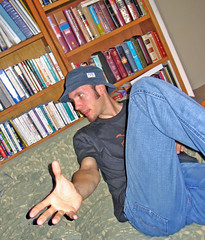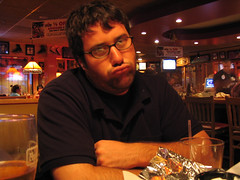Is there something you want to be able to do, but can't do it yet? Or are there things that you wish you could do a little faster, reading, typing, critical analysis, anything? Then there are those useless talents that everybody wants to have, but never tries, like juggling, throwing cards into a hat? All of these things appeal to me, and I was jealous of ... For having the time to acquire these talents in the movie Groundhogs Day.
well this movie got me thinking, how much time do we have that we don't use? How often do you find yourself waiting at the stop light, or at the doctors office, anywhere where you can't really do something productive, but have time? I say, use that time. Doing what? Improving your ability to learn. Increasing the connection between the left and right sides of your brain. Maybe learn a language, or five. The limits are boundless, but I don't think I have sold you on the benefits of the idea.
Why do these useless talents matter? I recently started to learn how to do several things left handed. One of these is writing left handed, and mirror, which is more natural for the strokes, but not for the brain. And what did I notice about my normal writing? My penmanship has improved drastically. It almost looks like another persons writing. The drawbacks area that it only lasts for several hours at the moment, as I am not proficient at writing left handed yet, so I am developing theories as to why this happens, but anyways. It also, in my opinion, helps tap into the creative part of my brain. The best people at problem solving, have the ability to switch between highly logical and highly creative sides of their brain. Some of this ability is innate, or at least fostered at an early age, but I believe the ability to improve this connection, however weak it may be at the moment, never goes away.
Well, I must be off to class, but I will add more later in the day.
Ok, I am back. So another talent I recently acquired, is speed reading. Now this one is a little tougher than some of them out there, but I think it will probably end up being most benefical. I am very suprised at the reaction I have gotten from this though. Several people have said things like "why would anyone want to read faster? I like reading for fun, not for work, and that seams like work to me." Or "I have heard you lose the enjoyment by doing reading fast." It is a tool. It would be like writing all of this down instead of typing it out. Are there fun aspects to writing as opposed to typing? Sure, I still write, but I also type, there is a place for both. How much you do of each depends on you. I journal in writing and typing. Sure I would like to only use one, but I use each for different purposes.
The other aspect is the time it takes to learn how to do this. Yea, it does take time and practice, but I will gain this back once I am faster at it. And I don't feel compelled to do it all the time, or to always be improving. There is a time for doing what you have always done, and a time to improve. I am also learning to only read what I want, and not feel compelled to read a whole book if I have gained the insight I was looking for, or if I really don't like the authors perspective, or if they are negative, or whatever. It is very liberating for me to not feel this pressure.
I find it interesting to see how stuck in their ways people, and myself, can sometimes be. It is like someone trying to convince me that they enjoy the hunt and peck method of typing, and that they could not imagine the drudgery of having to use qwery, and how they would lose the aesthetic value of typing and searching for the right keys, or maybe the connection they had with the computer when hunting and pecking. Just doesn't make sense to me. But change is a slow process, and I am programming myself to become accustomed to change. So I don't mind peoples apprehension to it, I just want to understand what their misgivings are, so I can help them to overcome it to the degree they are willing to.
One way I am going to try to help people overcome their reluctance to positive change, is a comedy routine at a standup club. I am writing the material for this in between classes and whenever (in my free time, ha ha ha, get it? Ok, so I am very busy, but I still have tons of little moments here and there to expend mental energy in multiple avenues of creativity). We shall see how this goes, if it is well received at all. It will be an experiment at how to get the audience on my side, then speak the truth in love, and still have them accept me enough to believe what I am saying. I'll write about this later. Go out there and try some new stuff, and let me know, ok?



